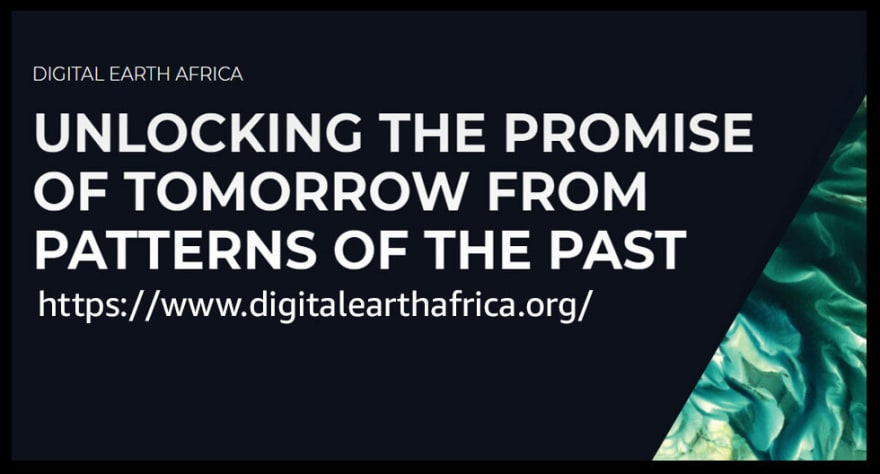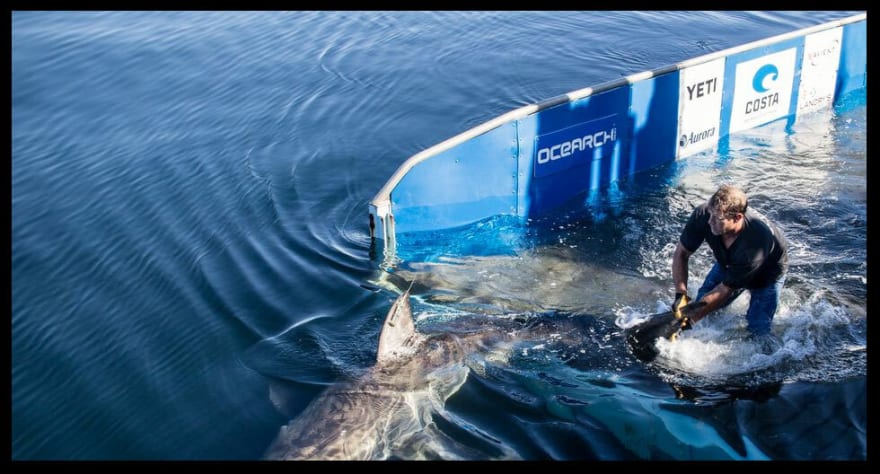This content originally appeared on DEV Community and was authored by Christopher Thompson H.
Hello data Lovers! this blog will talk about some initiatives driven by AWS technologies that allow us to analyze and prevent some of the most significant effects of climate change in the world. Each section has its respective source to learn about the initiatives directly, and it's only a compilation of what already exists on the web. 😄
Data and its analysis are increasingly crucial for the urgency of measuring, model and monitoring global climate change. Organizations multi-laterals, governments, non-governmental organizations, and companies worldwide are committed to the compilation and generation of databases that support the fight against global warming.
However, researchers are increasingly using new tools with higher availability and accessibility based on Cloud computing's technology, like analytics advanced resources for accelerating real-time monitoring.
Digital information for decision making in Africa
Digital Earth Africa is a program that promotes access to Earth observation data that allows African countries uses Sattelite's information about floods, droughts, soil, and coastal erosion, agriculture, land cover forests, land use, among other services. The users can analyze the critical data in minutes after they become available.
Thanks to the AWS initiative Amazon Sustainability Data Initiative (ASDI), this information has been supported and endorsed by the various entities within this program.
The success story published by AWS can be found in the following blog:
https://aws.amazon.com/es/blogs/publicsector/digital-earth-africa-enabling-insights-for-better-decision-making/
Melting of Peruvian glaciers in real-time
Perú represents approximately 68% of the tropical glacier's mass, which has reduced by less than half over the last 40 years. The Instituto Nacional de Ecosistemas de Glaciares y Montañas (Inaigem), administrated by the state, uses machine learning and artificial intelligence tools for analyzing the compiled data in real-time. All of this is in the most vulnerable glacial lakes for calculating the probability of possible avalanches, shortening the answer time, and issuing alerts to prevent accidents and harm to the population.
Thanks to AWS Technologies, it is possible to collect the information in real-time (with seconds difference) through sensors consolidating data in a central repository and data lake in AWS, generating alerts through messages services for possible avalanches or landslides.
If you want to find out more, these are the links:
https://tc.copernicus.org/articles/13/2537/2019/
https://www.aboutamazon.com/news/aws/tracking-the-disappearing-glaciers-of-peru
Shark and sea state monitoring
95% of the ocean is unexplored, and the lack of data will affect conservation efforts. Non-governmental organization Global Ocarch borns to help scientists deal with the previously unavailable information. Cloud Computing is for storing and sharing data with Sattelite telemetry above the shark movement through the Ocarch Shark Tracker and Ocarch tracker applications in his site. This information allows most of 180 scientists of 90 organizations to progress in 23 different research projects.
OCEACH uses Amazon Simple Storage Service (Amazon S3) to store its recompiled data. Amazon Relational Database Service (Amazon RDS) for its shared database, Amazon Elastic Compute Cloud (Amazon EC2) for the computing power, and Amazon Route 53 how domain name system.
The success story published by AWS can be found in the following blog:
https://aws.amazon.com/es/blogs/publicsector/assessing-oceans-health-monitoring-shark-populations/
Securing the future for the Tazmania devil
This marsupial is threatened for changes provoked by humans or devasting fires and for infectious cancers that can cause facial tumors and reduce their number by more than 80%. The Cloud has accelerated the work of Sydney University Experts using data of the Tasmanian genome. Those analyses will use for researchers worldwide, and search helps protect those marsupials and other endangered species.
The team's work has accelerated since the start of a proof of concept in AWS. According to the team, it allowed them to speed up the investigation and manage the finances carefully.
If you want to find out more, these are the links:
https://www.zdnet.com/article/university-of-sydney-using-cloud-to-prevent-the-tasmanian-devil-from-extinction/
https://aws.amazon.com/es/opendata/open-data-sponsorship-program/
Other interesting cases
Saildrone
https://aws.amazon.com/es/solutions/case-studies/saildrone-video-case-study/
CMIP6 dataset to foster climate innovation and study the impact of future climate conditions
This content originally appeared on DEV Community and was authored by Christopher Thompson H.
Christopher Thompson H. | Sciencx (2021-12-20T19:43:43+00:00) How to combat climate change with data in AWS. Retrieved from https://www.scien.cx/2021/12/20/how-to-combat-climate-change-with-data-in-aws/
Please log in to upload a file.
There are no updates yet.
Click the Upload button above to add an update.




